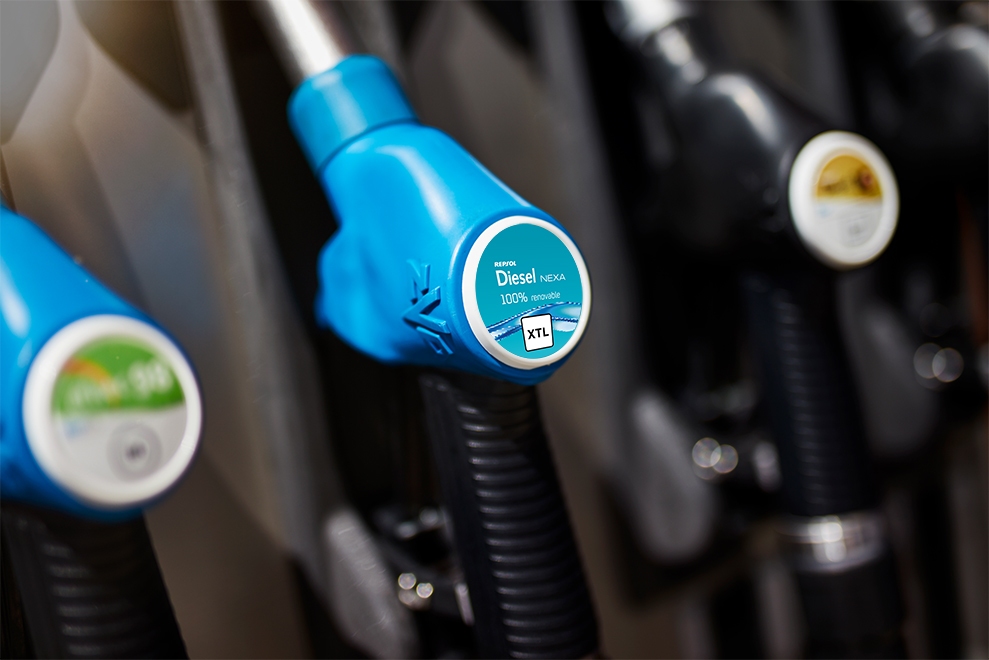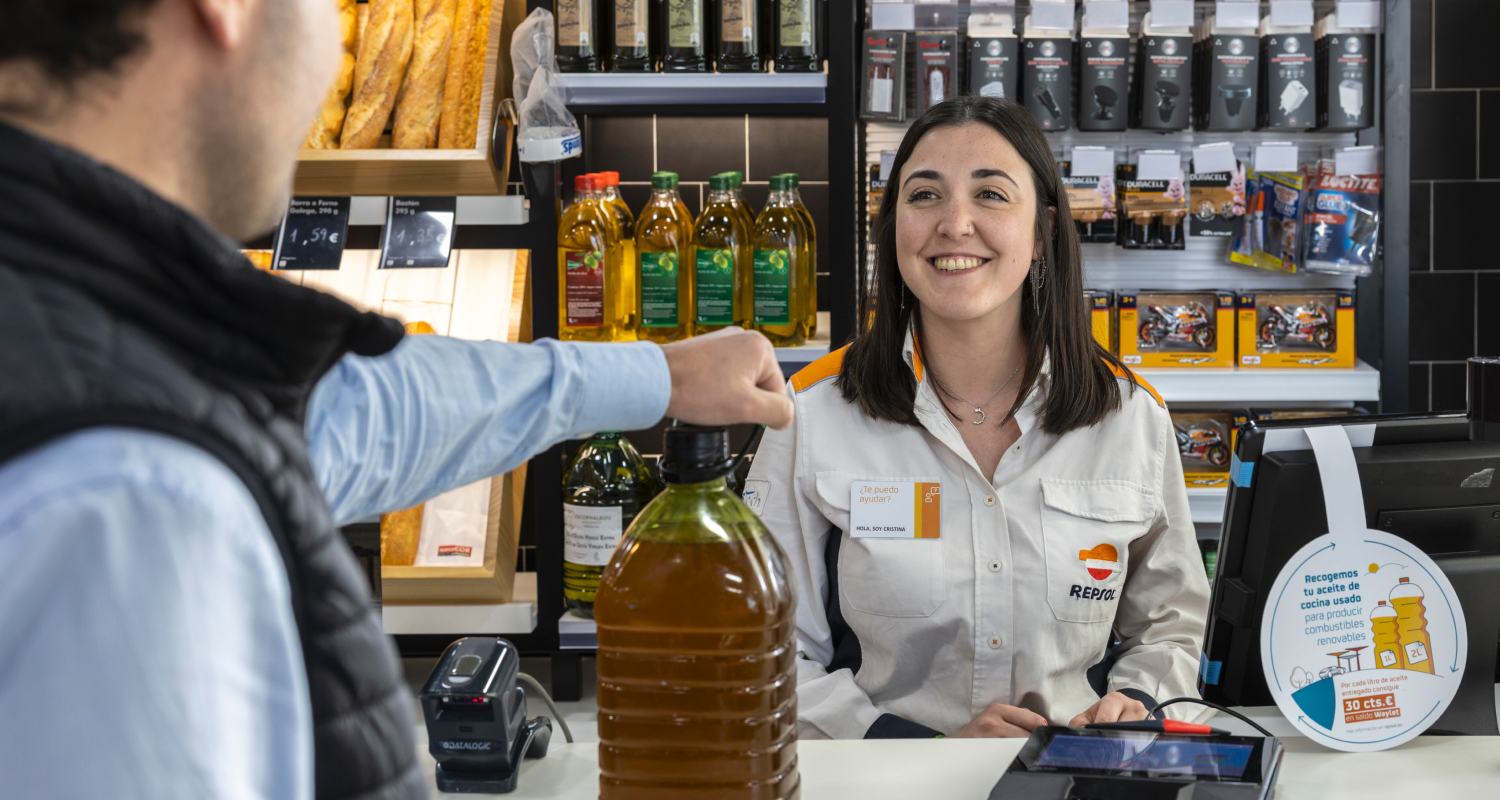
All about new renewable fuels
All about new renewable fuels
A real alternative for mobility
Reading time: 6 min
What are renewable fuels?
What are renewable fuels?
Renewable fuels are liquid fuels that are manufactured from organic waste. They can be used in combustion vehicles, while also using the same supply network.
The adoption of renewable fuels can bring great advantages for those sectors where decarbonization is more complicated, such as heavy-duty road freight, aviation, or maritime transport.
As set out by the Paris Agreement, 2050 is the year when society aspires to become net zero. Even though it seems a long way off, the effects of climate change are urging us to take measures to accelerate the energy transition.
Renewable fuels are made from organic waste, such as used cooking oils, nut shells, waste from the agri-food industry, or tree trimmings. One of their main strengths is that they are fuels that minimize emissions, since the CO2 released during their use is equal to the CO2 that has been previously removed from the atmosphere by the waste used in their manufacture, making them one of the most effective solutions for reducing emissions from transportation in the coming years.
They are an instant alternative because they can be used in combustion vehicles, using the same supply infrastructure, which means that we do not have to wait for new technologies to be developed or the vehicle fleet to be renewed before we can start reducing emissions. In fact, according to current legislation, the fuel we fill up with at service stations today already contains more than 10% renewable fuels. Similarly, its production and distribution can be carried out using existing industrial facilities, with local raw materials, which boosts the circular economy and allows us to diversify the country's energy matrix so that we continue to move towards energy independence.
In Spain, all the fuels you find in our Service Stations already include more than 10% renewable fuels, in compliance with the obligation of introducing a minimum percentage of biofuels in the total fuel sales in road transport, as established in RD 1085/2015 on the Promotion of Biofuels. As it is a global computation, it is not guaranteed that all products include said percentage. We are working to ensure that this percentage continues to grow.
Types of renewable fuel
Types of renewable fuel
These fuels offer different advantages, they can use the current infrastructure network, and can be used in combustion vehicles. We can distinguish between two main types: biofuels and synthetic fuels or e-fuels.
Current renewable fuel projects
Current renewable fuel projects
Repsol is currently developing several projects that drive our goal of producing two million tonnes of renewable fuels by 2030.
Collection of used cooking oil
Collection of used cooking oil
Find out more about this action we are carrying out in the Community of Madrid, Castilla La Mancha, and Galicia
Do you want to know more interesting facts about renewable fuels?




